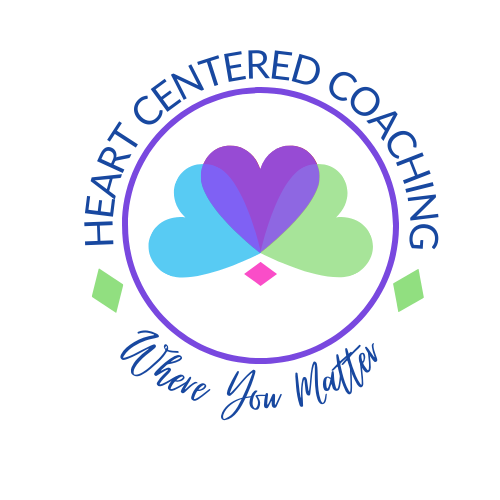What is Normal for you?
One thing that has become clear as I continue in my education and trauma recovery coaching is that only after an individual decides to begin healing were they able to face the facts that their childhood was worse than thought. In fact, many start off the bat stating that they’ve had great childhoods and had awesome parents. The rush to defend the parents is strong.
I wonder…. If the childhood was so great, Why the struggles now in adulthood?
This is what I see happens……
Usually after something or a series of events the rose-coloured glasses lose their power.
Only then it’s noticed there has been a lot of dysfunctions. Perhaps in the family of origin [FOO] it’s noticed that there wasn’t a lot of healthy communication, or there was unwarranted violence or anger, there was neglect [physical and or emotional], chaos, drugs/alcohol abuse, parentification of child/ren, or other forms of abuse/neglect, and more.
Growing up in environments like this, the child only sees this as normal. It’s what they know; it’s normal to them so they don’t talk about it. They learn to not complain [others have it worse], to keep secrets – it’s the don’t ask-don’t tell rule. If there is emotional or psychological abuse happening then the child/ren learn that what happens is their fault, of if they do tell someone, the family will be split, and again, that’d be their fault.
This lack or inability to be open and honest in communication, the keeping of secrets, the shame – these become part of how these ones’ roll. This is the way life is supposed to be, right? Don’t all families have dysfunction so why should I *make a big deal out of mine*? That sounds like self-gaslighting language to me.
The damage and pain this environment cause is way too heavy for a little one to shoulder son in order to cope the child feels the need to pretend that all is fine, or they turn off their feelings all together and become numb or disengaged. This becomes *normal*.
Something’s gotta give, eventually, right?
Down the road what gives can be health, physical or emotional. Why? Because all childhood / developmental trauma is stored in the body. Eventually things will surface either in flashbacks or physical pain and suffering.
Yet the reluctancy to admit that homelife wasn’t all that healthy is hard. There is the struggle with seeing self as disloyal. After all, didn’t our parents do the best they could?
Why does it have to be either or? Can’t both be true? That parents did the best they could and the home environment wasn’t the best? Perhaps that is true in your case? Perhaps it wasn’t.
True, all would like to look back and see there was a good childhood with happy memories, where parents were able to meet their children’s needs and they felt attached and close. Most want to believe their siblings and family environment was good. The alternative reality is too much for many to accept. So, some fantasize. Others remain fully aware of the circumstances they find themselves in as a kid. Either way deep damage ensues.
Parents aren’t given the responsibility to just keep their children alive. Their responsibility is to support their child/ren to become the best version of themselves – to blossom and thrive. Parents need to nurture, protect, and guide their children. This is their child/ren’s birthright.
We cannot dismiss the need for a child, every child to grow up feeling safe, loved unconditionally, and wanted. These needs must be met and they are equally important as food, clothing and shelter.
If you didn’t have that kind of upbringing then chances are you have struggles.
And that is OK.
The first step in trauma recovery is awareness. It happens when you acknowledge what happened to you in childhood. It is crucial to name it. Only then can healing and repair happen. You cannot heal what you do not acknowledge. This step is perhaps the biggest hurdle for some.
And this creates another paradox. Because you then can feel torn and negatively judge yourself, thinking that it is selfish and ungrateful to want more – from life and from family. [more self-gaslighting]
And it is important to restate this truth – healing from childhood trauma is NOT about blaming the parent(s) or the sibling(s) or anything like that. Trauma recovery is about acknowledging the truth – what happened. Full stop. If any family feels that you’re blaming them for what happened to you, this means they are carrying their own shame.
Their shame is not yours to carry.
Their secrets are not for you to carry.
The body already knows what it has experienced since conception. Pretending, making self think happy thoughts, focusing only on the positive — all lead to a life of constant disconnection. Therefore, New Age thinking is toxic. Handling life like this is Not sustainable, nor is it healthy. It forces you to live in denial. Medical and scientific facts show it is better to see life realistically. Life is richer when we take note and are attuned to the great times and the not so great. Admitting to what is, is best. Life is not some fairy tale. Life is full of triumphs and travesties, times of sheer joy and deep grief and perhaps even betrayal.
Let me ask again, What is your Normal?
When you are ready to do the work of addressing the challenges that stem from adverse childhood experiences and want support to gain healthy coping strategies, I’m here.
You are not alone.
Lisa B Hilton is a Certified Trauma Recovery Coach, supporting adult survivors of childhood trauma and neglect transform their travesty into triumph, whereby they can live life in freedom and authenticity.
